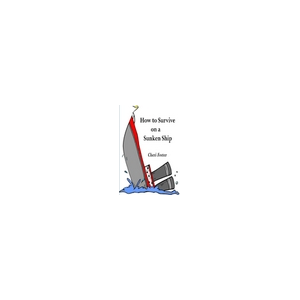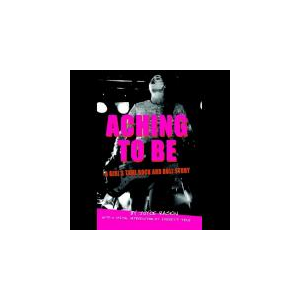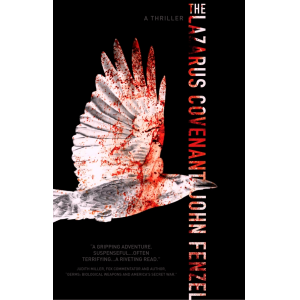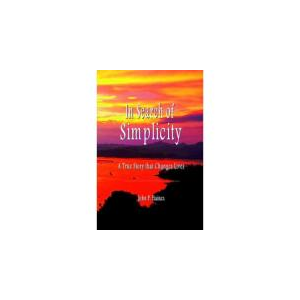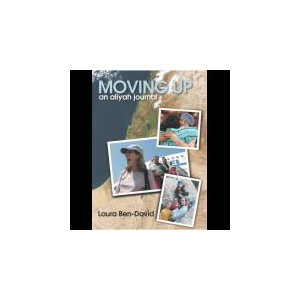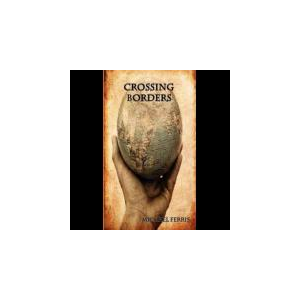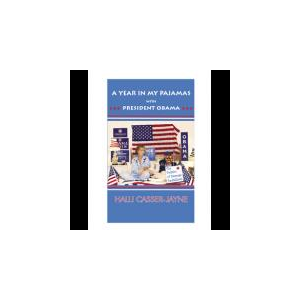Killing Time in Saudi Arabia: An American Experience
What would you do if you found yourself in the middle of the War On Terror, without knowing it? What would you do if you worked for a company that didn’t care if you lived or died?
In the third book of his American Experiences in Arabia During the War On Terror series, Matthew D. Heines takes a job as an English Instructor training National Guard Officers for the Saudi Arabian military. After his arrival, thanks to Iraq and Abu Ghraib prison, the heaviest fighting erupts in Riyadh during the years 2004-2005. For eighteen months, the author experiences life in the Middle of the War On Terror. It’s crazy, funny and tragic, all at the same time.
The Story Behind This Book
What would you do if you found yourself in the middle of the War On Terror, without knowing it? What would you do if you worked for a company that didn’t care if you lived or died? In the third book of his American Experiences in Arabia During the War On Terror series, Matthew D. Heines takes a job as an English Instructor training National Guard Officers for the Saudi Arabian military. After his arrival, thanks to Iraq and Abu Ghraib prison, the heaviest fighting erupts in Riyadh during the years 2004-2005. For eighteen months, the author experiences life in the Middle of the War On Terror. It’s crazy, funny and tragic, all at the same time.
Media Mentions
Praise and Reviews
Killing Time in Saudi Arabia: An American Experience
Matthew D. Heines
Heinessight, Inc.
9780990879374 $18.99
Now, Killing Time in Saudi Arabia demonstrates perfectly the reason why some books written as a trilogy should be viewed as 'one', read in order, considered as a unit, and stronger as part of a package production. For without the background provided in My Year in Oman and Another Year in Oman (which documents the author's experiences from 2001-2003) this third book would not feel nearly as rich and fulfilling in background, setting and sentiment as it covers eighteen months of life from 2004-2005, when some of the heaviest fighting of the War on Terror occurred - right under the author's nose.
In Killing Time in Saudi Arabia Heines has left Oman and taken a job as an English teacher, training national guard officers for the Saudi Arabian military. Amidst the backdrop of educational progress are the uncertainties and threats of war: gunfire erupting and changing lives, drives through the streets of Riyadh, reflections on life, death, and independence ("…I had become a person who was somewhat in control of his situation…I suddenly realized that the act of buying a car had changed in one night, my entire Saudi Arabian experience.")
New reports of gunfire, killings, and terror are a very effective conclusion to every chapter, documenting daily life in the Middle East and placing the author's experiences within the context of a wider world's troubles and a culture's psychology and wonders.
This isn't just about serious life-threatening moments, as readers might expect: there is much humor to be found in cultural misunderstandings - as when Heines believes he has contracted to tour a camel farm and gets something far different: "The worst thing I thought could happen was a terror attack. I had been concerned about being killed when I should have been concerned about being embarrassed and humiliated. "I did everything I could to make it clear that we wanted to see a camel farm," I explained. "I must have asked him three different times…Wouldn't you just assume that a camel farm would include camels?" It's one thing to fail to arrange to see camels. It's quite another to bring a group of eager tourists along for the ride: a group interested in the trappings of culture, not the culture itself: "With few exceptions, most of the group was not interested in Saudi culture at all, which made my appearance in Saudi clothes just one more bizarre detail in an increasingly bizarre story."
Against the backdrop of love, war, tourism and teaching, the gaps between West and Middle East are highlighted. Under Heines' deft hand these cultural interactions and misunderstandings come to life and ultimately serve to provide a better understanding not only of Middle East atmosphere and culture, but of the psychology and perspectives of ordinary people living in a very different world.
A series of misadventures and ironies emerges; even more so than in the two Oman books - which is unexpected, because by Book Three readers would anticipate that Heines has likely penetrated the Middle Eastern veil and is settling in. Nothing could be further from the truth: he's now in a different region and his understanding is still uncertain, his grasp of politics and peoples still tenuous, and his experiences greatly different than in the comparatively isolated medieval town atmosphere of Oman, with its very different world.
Again, humor is embedded in every chapter; so if you don't want quirky observations and tongue-in-cheek wry remarks, look elsewhere … though that would be a shame, because this approach is what lends all three books a personal, interactive, intimate perspective lacking in most other accounts of the Middle East: "…except for the threat of a large-scale attack by a battalion of terrorists, car combings, or random acts of terror, I had little to fear."
Another difference between these books and other Middle East accounts is that Heines always seeks to think - and act - outside the box. Thus, he often arranges for expeditions beyond his teaching objective and his comfort zone: "…we made plans for yet another expedition into the far reaches of Saudi Arabia with the Riyadh Rovers. With no map, and no GPS, all I knew six days later, was that we were somewhere in the north, near Kuwait."
His expeditions, as with his teaching goals, are all about breaking through these boundaries of comfort, and bring readers along for the bone-rattling jeep rides and cultural encounters introduced by romance and experience alike.
Some might fault Heines for including romance in every book. Some might look for more background history, or more cultural insight, or even more teaching encounters (if the reader intends on teaching abroad and is seeking pointers) - but that's not the objective of this trilogy.
Its purpose is to profile the author's cultural encounters and his immersion in foreign lands and perspectives, and it's here that this trilogy shines.
It's life in the middle of war, life in the middle of cultural incongruities, and most of all, it's about reaching out of one's familiarities to grasp for more. Individually each book in the set stands alone as an engrossing saga. Taken together, they form the nexus of a cultural investigation not undertaken in your usual Middle East books written by commentators, observers, and military personnel.
Any who would truly understand the region and its psyche would do well to enjoy the combination of rollicking adventure and cultural insights that permeate all three stories, defying the usual labels of 'travelogue', 'teacher's experience', 'romance' or 'social analysis' to embrace elements of all four approaches.
D. Donovan, eBook Reviewer, MBR
"Matthew Heines has just published a wonderful book Killing Time In Saudi Arabia. It details his 18 months in the country working as a contractor teaching English to the Saudi Arabia National Guard.
The book is one that I greatly enjoyed, there is a surface layer of humor but when you dig there is a much more serious layer. It is all about trying to reconcile western customs with those of the guest country. There is little room for error, and errors can be costly.
In Matthew's case not only was he faced with the culture shock of the country, but the culture shock created by his employer."
An American Experience
"I think it is fair to say that Killing Time In Saudi Arabia was not quite what I expected. I have known several PMC’s (Private Military Contractors) over the years. They are a unique breed, often working at the behest of a government but somehow not quite getting the respect and protection deserved. It was with this preconceived notion that I started to read Killing Time In Saudi Arabia.
While names and places have been changed to protect those still in the region Matthew Heines maintains that the story is factual. The first thing I noticed was that Matthew Heines was not a wanna be Rambo, he is a teacher of the English language, a noble task and unfortunately one not often appreciated.
The book opens in a rather strange way, Matthew has completed a two year contract in the Sultanate of Oman, a place that he rather enjoyed, however, due to a non-compete clause with his employer Matthew is prevented from seeking employment in Oman for a period of two years.
Good at his job and few openings for his skills in his hometown of Seattle, he accepts an 18 month contract to teach English to the Saudi Arabia National Guard as an employee of BF Milicon a company that provides a number of services, mainly of the military nature in the country.
The terms of the contract seemed favorable, a decent wage, free lodging, use of company vehicles, etc, etc. Although Mathew plays it down somewhat he must have been impressed by the method of transportation to Saudi. A 747 in the livery of the Saudi national airline. While this in itself may not be strange, the passenger manifest certainly was. It was just Matthew and three other BF Milicon employees. Now that is what I call leg room on a flight!
I think it is fair to say that this was the highlight of the entire contract, once in Saudi Arabia life was not so exotic. Life in Saudi was completely different to Oman. In a strange way, it was not the culture difference between countries so much as the culture system inflicted by BF Milicon that caused most distress. At the apex of unreason lay a gentleman by the name of Garth Viller. Darth Vader oops Garth Viller seemed to have a particular dislike for English Teachers and one Matthew Heines in particular.
Killing Time In Saudi Arabia is billed as humor, and indeed there is a surface layer , a veneer that does indeed reflect that concept. Being an ex-pat Brit I love dry humor. However, when you strip that layer off a very different book is revealed.
The question becomes how do you maintain a sense of normalcy in an environment that is essentially alien to you? You can hardly nip off to the local bar for a couple of drinks and maybe find some female companionship. Dating local women is off the list, that will just get you on the fast track to a very short and unhappy life.
Matthew Heines took a different approach, he joined a local Hash House Harriers group. I have to admit that I had not heard the term for decades. At its most basic form it is a drunken treasure hunt. Purists may disagree and explain that it is all about cross country running crossed with a dose of cartography, although it has been my experience that the map reading was limited to the next place that had beer! Of course in Saudi such activities would have been frowned upon. For the Hashers however there was a silver lining, the Hash became a social event that western nurses would come and watch. Anything to get out of the city and enjoy both the rugged landscape and company of fellow westerners.
The Hashers are just one aspect of Killing Time In Saudi Arabia. The book is rich in strange tales. Many are humorous, but taken as a whole it is a book that anyone planning on taking a contract in the middle east should take some time and read.
You can order your copy from Amazon by using the link above.
Simon Barrett
Author Interviews
Related Books
More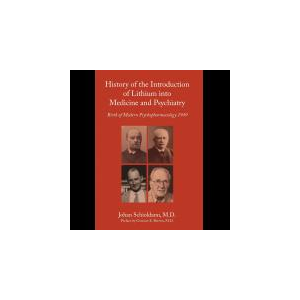
History of the Introduction of Lithium into Medicine and Psychiatry: Birth of modern psychopharmacology 1949
Biographies & Memoirs
Education & Textbooks
Reference
504 views
Life to the Max: Maxims for a Great Life by a Dog named Max
Children's Books
Biographies & Memoirs
Family & Relationships
252 views

Flying Above the Glass Ceiling
Biographies & Memoirs
Entertainment & Style
Professional & Technical
323 views

